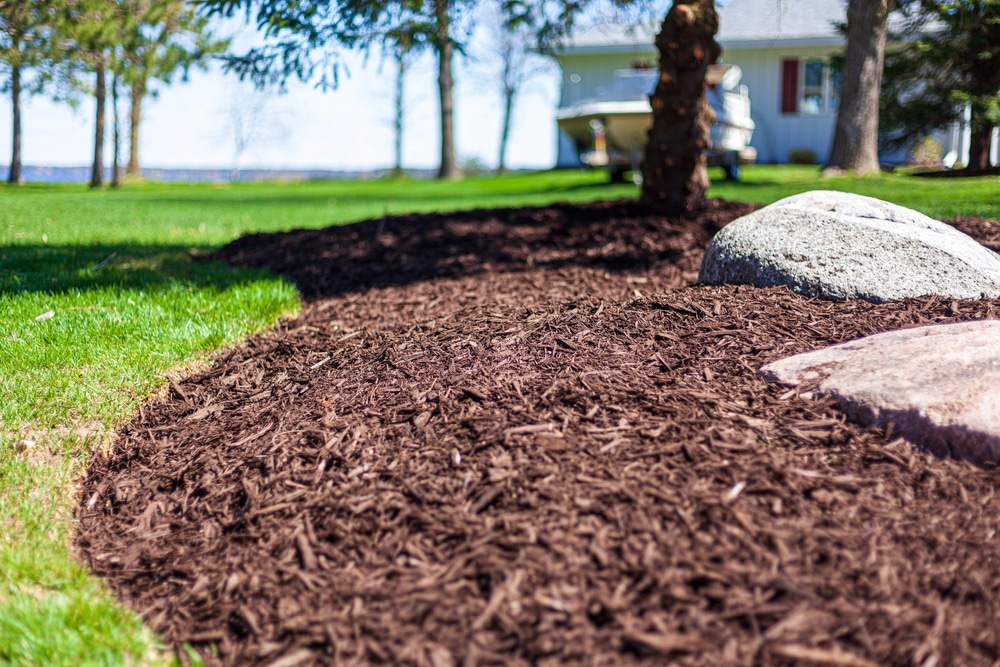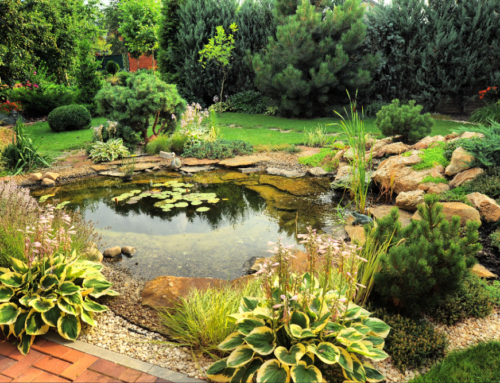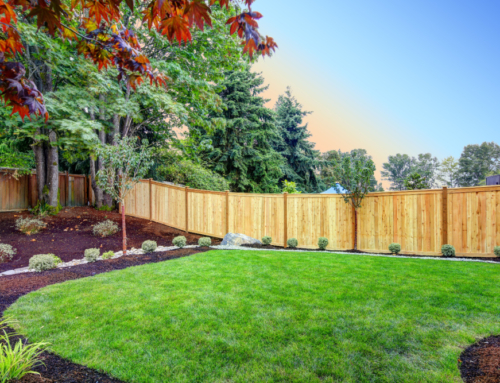When you think about landscaping and gardening, adding mulch to your grounds is one of the most important parts. Whether for a home or commercial building, using mulch allows plants to thrive by keeping in moisture and nutrients and blocking out competing weeds. Not only does mulch provide nutrient-rich soil for plants, but it can also add functional benefits and aesthetic appeal to implementing this type of material into your landscape design. In this blog post, we will explore all the advantages of using mulch in your area so that you know why it’s worth investing in!
What is Mulch, and How Does it Help Your Landscaping Efforts?
Mulch is a valuable addition to any landscaping efforts. This organic material acts as a protective covering over the soil in planting beds, gardens, or trees and shrubs. Mulch comes in various materials, including wood chips, pine needles, straw, hay, and leaves. Not only does it enhance the visual appeal of your outdoor space, but it also provides numerous benefits. Mulch helps to conserve soil moisture, suppress weed growth, and regulate soil temperature. Additionally, as it decomposes, it enriches the soil with nutrients. Applying a layer of mulch is an easy and affordable way to boost the health and appearance of your landscape.
The Benefits of Using Mulch in Your Yard
Are you tired of constantly battling with weeds in your yard? Or struggling to keep your plants healthy and hydrated during the hot summer months? If so, then consider incorporating mulch into your landscaping routine. Not only does mulch help to suppress weeds, but it also helps to retain moisture in the soil and regulate soil temperature, leading to healthier and more vibrant plants. Additionally, as the mulch breaks down over time, it adds valuable nutrients to the soil, further promoting a thriving garden. So why not give your plants the best chance for success by adding mulch? Your yard (and wallet) will thank you.
Types of Mulch to Consider For Your Gardening Needs
However, with so many mulch types available, deciding which one to use can be challenging. Organic mulches, such as shredded leaves and bark, can enrich the soil and provide a natural appearance. Inorganic mulches, such as stone and rubber, are longer-lasting and low-maintenance. Other factors, such as cost, availability, and personal preference, can also influence your mulching decision. No matter which type of mulch you choose, make sure to apply it correctly and avoid over-mulching, as this can harm your plants.
Best Practices for Installing and Maintaining Mulch in Your Landscape
Maintaining a lush and healthy landscape can be a lot of work, but it’s worth it when you can relax in your backyard oasis. Installing and maintaining mulch is an effective way to keep your landscape healthy. The best practices for installing and maintaining mulch include choosing the right type of mulch for your landscape, selecting an appropriate location, and properly maintaining the mulch layer throughout the year. Your landscape will stay vibrant and healthy for years with proper care and attention.
Tips on Finding the Right Supplier for Quality Mulch
When choosing the right supplier for quality mulch, remember a few things. First and foremost, do your research. Look for suppliers with good reviews and a reputation for providing high-quality products. Next, pay attention to the type of mulch they offer and ensure it meets your specific needs. You may also want to consider delivery options, pricing, and customer service factors. Remember, finding the right supplier for your mulch needs can make all the difference in achieving a healthy and thriving garden.
Benefits of Using Organic Materials as Mulching Options
The use of organic materials as mulching options has gained significant popularity in recent years and for good reason. First and foremost, organic materials, such as leaves, grass clippings, or straw, are natural and biodegradable, making them a sustainable option for the environment. Moreover, organic mulch helps to retain moisture in the soil by reducing evaporation, which reduces the need for frequent watering. In addition, organic materials also add vital nutrients to the soil as they break down, contributing to the overall health of plants. This can lead to improved plant growth and higher yields. Overall, the benefits of using organic materials as mulching options are manifold, making them an excellent choice for any gardener looking to reduce their environmental impact while improving their garden’s health.
As we have seen, mulch is an excellent option for those looking to spruce up their landscaping and keep their plants healthy. Not only can it give your garden an improved aesthetic appeal, but it can also provide valuable nutrients to nourish your plants’ roots. First, knowing what type of mulch works best for your landscaping and where to find high-quality mulch is essential. Depending on where you live, organic materials such as grasses or leaves might be the perfect solution. Lastly, installation and maintenance of the material should be carefully considered; speaking with experienced landscapers would be beneficial in starting the process. So if you are considering adding mulch to your landscape and need help finding the right experts for the job, don’t hesitate to contact us! We will ensure your yard looks better than ever in this new mulched reality.






